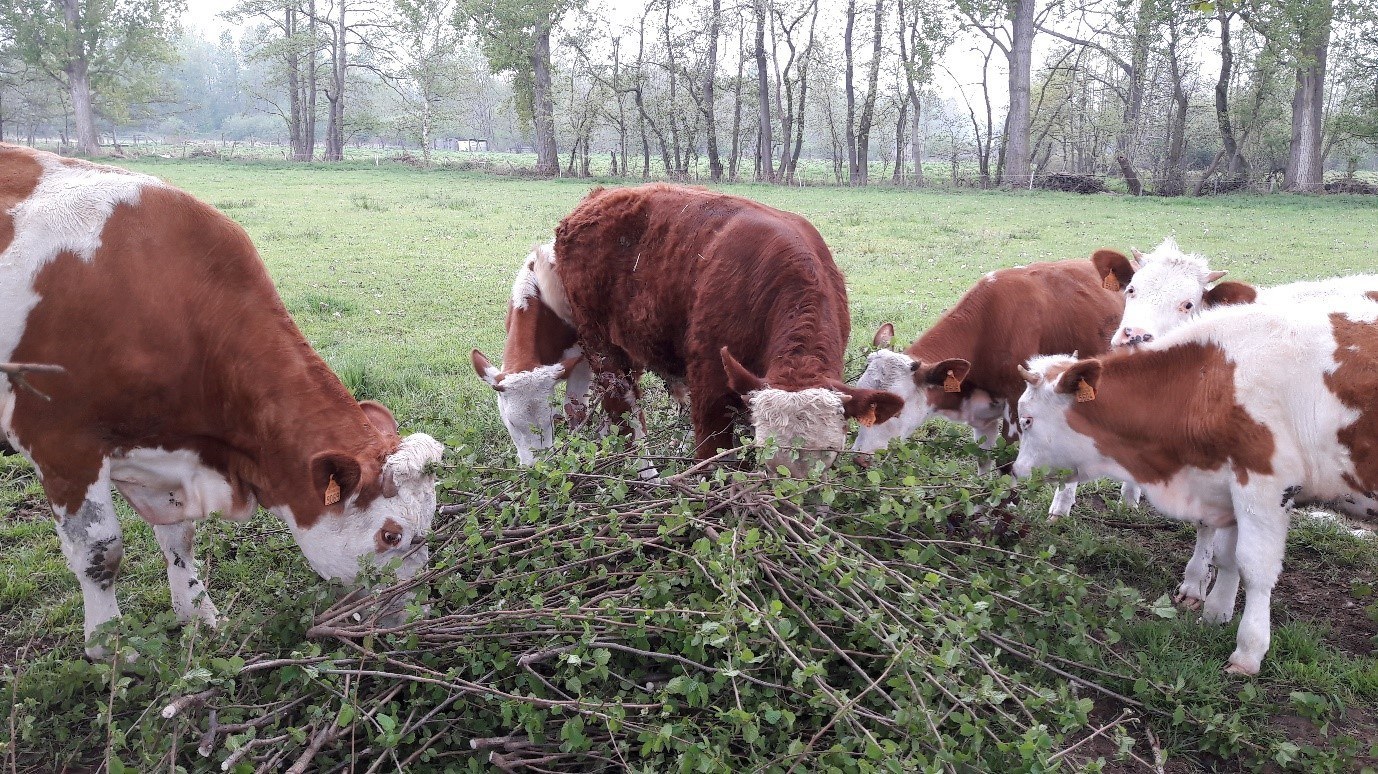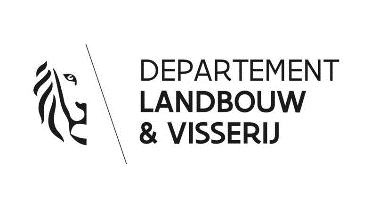Research project Voederbomen (fodder trees)
Project call CCBT (Coordination of applied research on organic farming), Department of Agriculture and Fisheries.
 |
Project summary
On February 15, 2020 Inagro , Odisee and consultancy company Wim Govaerts & Co started the project “Fodder trees for organic ruminants”. This project provides organic livestock keepers in Flanders with examples, insights, practical tools and expertise that enables them to integrate (fodder) trees and shrubs in their everyday operations. The purpose of the trees is aimed at optimizing animal behavior, animal health and welfare in the range, taking into account sector- and company specific needs. Within this project is focused on organic ruminants, especially dairy cattle, beef cattle, goat and sheep farmers. The aim of the project partners is to gather knowledge on fodder trees and their impact on the animals, both from literature and practical experience, and to share this through a participatory learning trajectory. Experts and livestock farmers will collaborate to design and realize outdoor systems with functional integration of trees and shrubs. During the project, knowledge exchange is stimulated via workshops, excursions and demo days. At the end of the project, the knowledge and experience will be bundled in a practical brochure.
Fodder trees as a useful supplement of the pasture
Organic livestock farmers (of both small and large ruminants) are obligated to provide outdoor access for their animals. However, conversations with various organic farm networks and experience from practical advice show that many farmers experience problems in realizing a good outdoor management. This has a major impact on the animals health and welfare and therefore often also on productivity (e.g. milk production). Smartly integrating fodder trees into outdoor management can provide structural solutions for various challenges in the organic sector.
Some interesting benefits of fodder trees in a nutshell:
- Trees provide protection against rain, wind and sun. Particularly heat stress in cattle is an increasing problem in Belgium with a negative effect on animal welfare, milk production and quality.
- Leaves and twigs, whether fresh, ensiled or dried, can be an excellent addition to the diet in terms of proteins, minerals and vitamins. At the same time, this allows for animal-like behaviour such as browsing.
- When the availability of grass decreases sharply in the summer or drought periods, on-farm grown leaves and twigs can buffer the shortage of fodder.
- Infection with endogenous parasites is a frequently occurring issue in many organic livestock farms. Fodder of tannin-rich plant material can make an important contribution to the prevention of gastrointestinal worm infestation.
- Woody landscape elements such as trees and shrubs promote the agro-biodiversity and landscape quality in the countryside. They provide a habitat for many useful species that can provide natural pest control, better pollination or increased soil quality.
- The provisioning of trees in the outdoor area responds to the rapidly growing demand of the (organic) consumer that the animals have an optimal outdoor area that allows animal-specific behavior and stimulates animal health and welfare.
Concrete project objectives
Putting into practice a well thought out and suitable outdoor
management for organic ruminants requires a great deal of knowledge and
expertise. With this project, we aim -together with the sector and the
bundled expertise of the project consortium- to provide the necessary
examples, insights and practical tools to successfully tackle the
functional integration of trees and shrubs in the outdoor area to
organic livestock farmers.
The following specific objectives are pursued in this project:
- Visualize the theoretical needs of ruminants in terms of animal behaviour, animal health and -welfare in an outdoor setting with trees and shrubs, based on existing research;
- The joint development (design) of an exemplary outdoor system at four Flemish organic farms with ruminants, spread over the various sectors (dairy cattle, beef cattle, goats, sheep) with interaction between the farmers and experts;
- The effective installation of a demo outdoor system at two different Flemish organic livestock farmers;
- The visualization of the mineral needs of the livestock on the two organic demo farms in terms of animal health.
- Exchange knowledge and experiences concerning theoretical insights and practical how-tos for the functional integration of trees and shrubs in the outdoor area in relation to animal behaviour, animal health and welfare;
- Strengthening existing networks of organic farms of dairy cattle, beef cattle and goats through the organization of interactive workshops and excursions;
- Establish a network of practicing farmers for future exchange and research;
- Make the acquired insights and experience result in a stronger substantiated advice.
The results will be bundled in the practical brochure ‘Getting started with functional fodder trees for (bio)ruminants’, which will also be accessible on the website of Agroforestry Vlaanderen.
More information? Contact:
Financier
This project was realized with support from the Flemish government.

